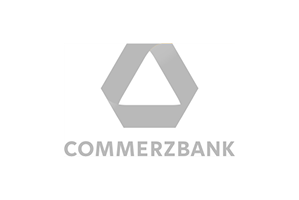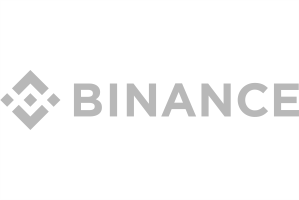Ranked third in Europe regarding the number of electronic money institutions (EMIs), Malta has established itself as an ideal location for e-gambling businesses. Currently, the country is second only to the UK and Lithuania, being a leader in fintech and technology regulation, especially in the field of blockchain and cryptocurrencies. In addition to comprehensive information about the Malta EMI license, you will be able to obtain it with Prifinance thanks to expert support every step of the way. Obtaining a permit is a necessary step to provide electronic money services and requires expert guidance to navigate the regulatory requirements effectively.
Advantages of Securing an EMI License in Malta
Achieving an EMI licence Malta unlocks numerous advantages:
- Access to an innovative, responsive regulator.
- Recognition within a stable Eurozone economy.
- Tax efficiency and cost-effectiveness bolstered by extensive tax treaties.
- A flourishing FinTech ecosystem.
- Reduced operational costs compared to other EU nations.
- Swift licensing process.
- EU passporting rights, opening up market opportunities across the EU.
- Dependable technical infrastructure.
- Access to international financial service providers and a skilled, English-speaking workforce.
- English as the primary language for all regulatory and official documentation.
By expanding access to the e-commerce sector, these elements not only fostered the development of Malta’s e-money industry but also linked it to the country’s success in online and remote gaming.
Creating a specialized e-money market was made possible by the synergy between Malta’s strong IT structure and the e-commerce boom.
Regulatory Framework for EMI License in Malta
The regulation is enshrined in the Financial Institutions Act (Chapter 376 of the Laws of Malta), which has been updated from the previous provisions of the Banking Act (Chapter 371 of the Laws of Malta). This marks a significant shift towards a more favorable approach to EMI.
Legal framework
The Financial Institutions Act — amendments, which came into force in April 2011, introduced a special regulatory regime for EMIs, moving away from broader banking regulation and creating a more favorable legal environment.
Legislative Features
- Initial capital requirement reduction from €1m to €350,000.
- Expanded definition of “electronic money” and permissible EMI activities.
- Introduction of safeguarding prerequisites and redemption rules to enhance consumer protection.
Passporting Rights
Thanks to EU-aligned legislation, Maltese EMIs can “passport” their services across EU and EEA states, subject to following a specific notification procedure, enabling them to operate either through cross-border services or by establishing branches.
Regulatory Authority
- Malta Financial Services Authority (MFSA)
- Regulates and oversees the licensing of EMIs, implementing directives like the EU Payment Services
- Directive 2015/2366 (PSD2) through the Financial Institutions Act.
- EMIs in Malta are authorized to issue debit cards but are restricted from issuing credit cards and engaging in ending activities.
- The MFSA fosters fintech innovation while emphasizing stringent anti-money laundering and anti-fraud measures.
Licensing Process
Applications for an E money license Malta are evaluated based on several criteria, with the MFSA having the authority to:
- Grant a license without conditions.
- Grant a license subject to conditions deemed appropriate.
- Refuse to grant a license.
Activities Permitted Under an EMI License in Malta
Holders of an electronic money institution license Malta are authorized to undertake a wide array of financial services as detailed in the Financial Institutions Act. These permitted activities include:
- Handling cash deposits and withdrawals for payment accounts.
- Executing money transfers and processing payments via cards or similar devices.
- Issuing and acquiring payment instruments and money remittance.
- Facilitating transactions through digital or IT devices, acting as intermediaries.
- Providing payment initiation and account information services.
- Offering related operational services, such as foreign exchange, linked explicitly to payment services and safekeeping.
Small Electronic Money Institution License Criteria
The MFSA can designate entities as “small electronic money issuers” with certain exemptions from the usual regulatory requirements if they:
- Are based in Malta with a primary business of issuing electronic money in the country.
- Maintain an average outstanding electronic money volume below €2 million.
- Have management free from convictions in financial crimes, including money laundering or terrorist financing.
EMI License in Malta and Ireland
If you want to obtain a Malta Electronic Money License, you should adhere to a number of standards, including an initial capital of 350000 euros, maintaining the amount of funds in relation to the issued electronic money. In addition, it is vital to have a physical office in Malta and local management. The application emphasizes competent management, good accounting practices, and clear communication with the MFSA regulator.
On the other hand, there is a license in Ireland, which requires initial consultations, application review, and a detailed assessment by the Central Bank. When preparing the documentation, it is necessary to consider business operations, financial position, and compliance plans. In addition, there should be security measures aimed at ensuring full compliance with regulatory requirements and operational readiness.
Requirements for Obtaining an EMI License in Malta
Obtaining a license e money in Malta requires adherence to updated regulations post-Directive 2009/110/EC, effective from April 2011.
Capital Requirements
- Pre-2011: Minimum initial capital of €1,000,000.
- Post-2011: Reduced to €350,000.
- EMIs must maintain at least 2% of the average outstanding electronic money, with adjustments based on risk evaluations.
Small EMI Provisions
- Under €1M in e-money: €50,000 initial capital required.
- €1M to €2M in e-money: Initial capital set at €100,000.
Operational Necessities
- A physical headquarters in Malta is obligatory.
- Leadership and Compliance Roles
- Board of Directors — at least two directors, with one locally present.
- Appointment of a local Risk Manager (potentially overlapping with Compliance Officer duties) and a
- Compliance Officer versed in AML/CFT laws.
- MLRO —no Malta residency requirement, but must have access to company records.
Compliance and Conduct
EMIs are expected to:
- Appoint suitable non-executive directors.
- Verify the integrity and capability of all directors and key officers.
- Keep adequate accounting and control systems.
- Maintain open communication with the MFSA for oversight and risk management.
- Ensure potential for consolidated supervision.
Application Steps for EMI Licence Malta
Initial Consultation and Pre-license Application
- Discuss the business plan and intentions with MFSA, submitting basic due diligence documents for owners, directors, and key personnel.
- Fit and Proper Test — MFSA assesses the management’s competence, experience, and integrity.
- In-principle Approval — granted by MFSA with potential conditions for full e-money license in Malta attainment.
Company Formation
- Formation of a Maltese trading company, selecting the appropriate business structure.
- Preparation and submission of incorporation documents to the Malta Business Registry, followed by registration.
Corporate Bank Account Opening
Opening of a corporate bank account with necessary banking facilities and systems for operation.
Full License Application
- Compilation of the business plan, AML/CFT policy, financial projections, and infrastructure details.
- E-signature of documents and submission of the full payment license in Malta application, ensuring compliance with pre-licensing conditions.
Staffing and Substance
- Hiring of qualified local employees and directors to meet the economic substance requirement.
- Selection and leasing of a physical office in Malta.
Final Application Filing
- Final application lodged with MFSA, with possible interview and document requests.
- Following approval, commencement of business operations within a defined timeframe to retain the license.
FAQ
What are the tax implications for a Maltese EMI license holder?
For those with a Malta E Money Institution Licence, the standard corporate tax rate is set at 35%. Yet, with strategic structuring, the effective tax rate for regulated financial entities can be significantly reduced, potentially to as low as 5% for shareholders.
How does an EMI differ from a bank?
EMIs, unlike banks, specialize in providing electronic money payment accounts, allowing users to conduct transactions without necessitating a traditional bank account. Banks, on the other hand, offer a broader array of financial services, including lending and investment services, beyond just payment processing.
Why might an EMI be preferred over a traditional bank?
EMIs are often favored for their cost-effectiveness compared to the fees associated with processing and handling services provided by traditional banks.
What factors does the MFSA consider in an EMI application?
The MFSA evaluates whether an EMI applicant has robust risk management practices, policies to combat financial crimes, effective safeguarding measures, and the capability to manage and report the entity’s records accurately.








